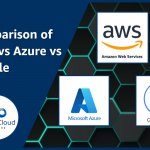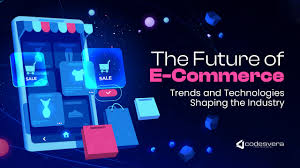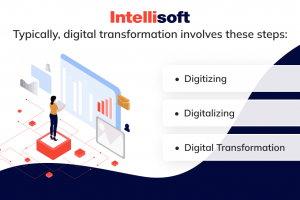In the fast-paced world of digital commerce and marketing, staying ahead of the curve is essential for businesses looking to succeed in the competitive landscape. With technology driving constant change and consumer behaviors evolving rapidly, navigating the digital landscape requires a keen understanding of current trends and emerging opportunities. In this article, we’ll explore the latest trends in e-commerce and digital marketing in the United States and discuss strategies for businesses to thrive in this dynamic environment.
MOBILE-FIRST SHOPPING EXPERIENCE
Mobile devices have become ubiquitous in consumers’ daily lives, and the shift towards mobile-first shopping experiences continues to accelerate. With smartphones and tablets serving as primary devices for online browsing and purchasing, businesses must prioritize mobile optimization to meet the expectations of today’s digital consumers. From responsive web design to mobile-friendly checkout processes, delivering a seamless mobile shopping experience is paramount for driving conversions and retaining customers.
OMNICHANNEL ENGAGEMENT
Omnichannel marketing strategies are becoming increasingly prevalent as brands seek to engage customers across multiple touchpoints seamlessly. The integration of online and offline channels, including websites, social media platforms, brick-and-mortar stores, and mobile apps, allows businesses to create cohesive brand experiences and drive customer loyalty. By leveraging data analytics and customer insights, businesses can deliver personalized messages and offers tailored to individual preferences, regardless of the channel.
PERSONALIZATION THROUGH DATA INSIGHTS
Data-driven personalization is at the forefront of digital marketing strategies, enabling businesses to deliver relevant and targeted content to their audience. By harnessing data insights from customer interactions, browsing behavior, and purchase history, businesses can create hyper-personalized marketing campaigns that resonate with consumers on a deeper level. From personalized product recommendations to customized email marketing campaigns, leveraging data for personalization enhances engagement and drives conversion rates.
CONTENT MARKETING AND STORYTELLING
In the era of information overload, content marketing and storytelling have emerged as powerful tools for building brand affinity and driving customer engagement. Businesses are investing in high-quality, value-driven content that educates, entertains, and inspires their target audience. From blog posts and videos to social media content and podcasts, brands are leveraging diverse formats to tell compelling stories that connect with consumers on an emotional level. By focusing on authenticity and relevance, businesses can establish themselves as trusted authorities in their niche and cultivate long-term relationships with customers.
SOCIAL COMMERCE AND INFLUENCER MARKETING
Social commerce continues to gain momentum as platforms like Instagram, Facebook, and Pinterest integrate shopping features directly into their user experiences. Businesses are leveraging social media channels not only for brand awareness and engagement but also as sales channels where consumers can discover and purchase products seamlessly. Influencer marketing plays a significant role in social commerce, with brands collaborating with influencers to promote products and drive conversions among their followers. By partnering with influencers whose values align with their brand, businesses can reach new audiences and generate authentic endorsements that resonate with consumers.
AI AND MACHINE LEARNING IN MARKETING AUTOMATION
Artificial intelligence (AI) and machine learning are revolutionizing marketing automation, enabling businesses to streamline processes, optimize campaigns, and deliver more personalized experiences at scale. AI-powered algorithms analyze vast amounts of data to identify trends, predict customer behavior, and automate repetitive tasks, such as email segmentation, ad targeting, and customer support. By leveraging AI-driven insights, businesses can optimize marketing strategies, increase efficiency, and drive ROI across their digital channels.
E-COMMERCE SECURITY AND TRUST
With the rise of online transactions, cybersecurity and trust have become critical concerns for both businesses and consumers. Data breaches, identity theft, and online fraud pose significant risks to e-commerce operations, requiring businesses to implement robust security measures and protocols to protect sensitive information. SSL encryption, two-factor authentication, and PCI compliance are essential safeguards for securing online transactions and instilling confidence in consumers. By prioritizing e-commerce security and transparency, businesses can build trust with their customers and foster long-term relationships based on reliability and integrity.
CONCLUSION: STRATEGIES FOR SUCCESS IN THE DIGITAL AGE
Navigating the digital landscape in the age of e-commerce and digital marketing requires agility, innovation, and a customer-centric approach. By embracing trends such as mobile-first experiences, omnichannel engagement, data-driven personalization, content marketing, social commerce, AI-driven automation, and e-commerce security, businesses can position themselves for success in the competitive digital marketplace. By staying informed about emerging technologies and consumer preferences and adapting their strategies accordingly, businesses can thrive in the ever-evolving digital landscape and drive sustainable growth in the digital age.















